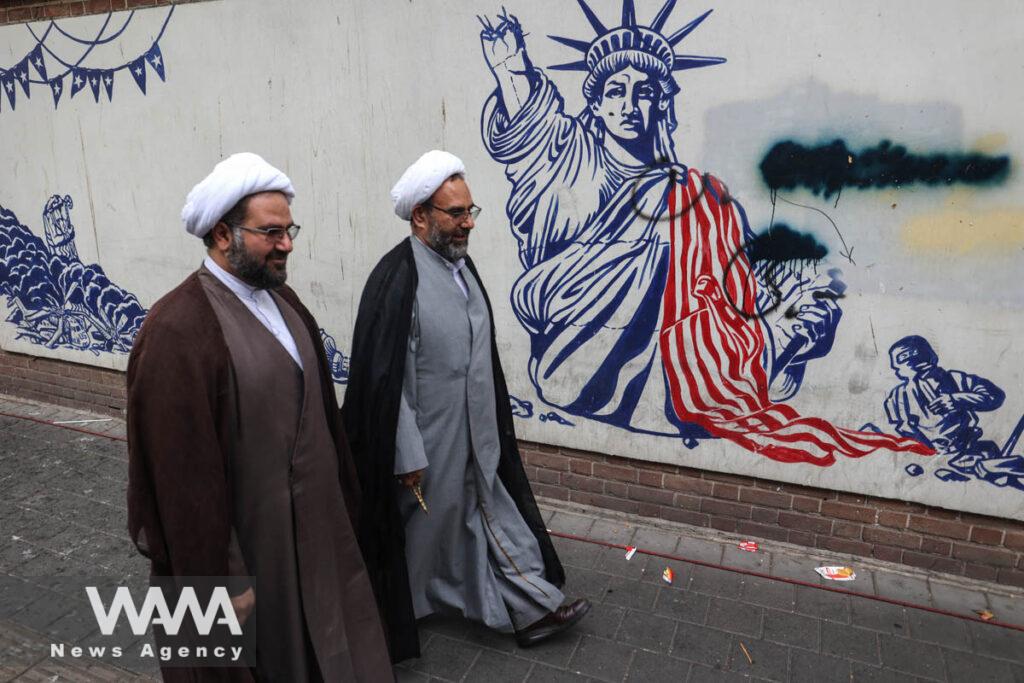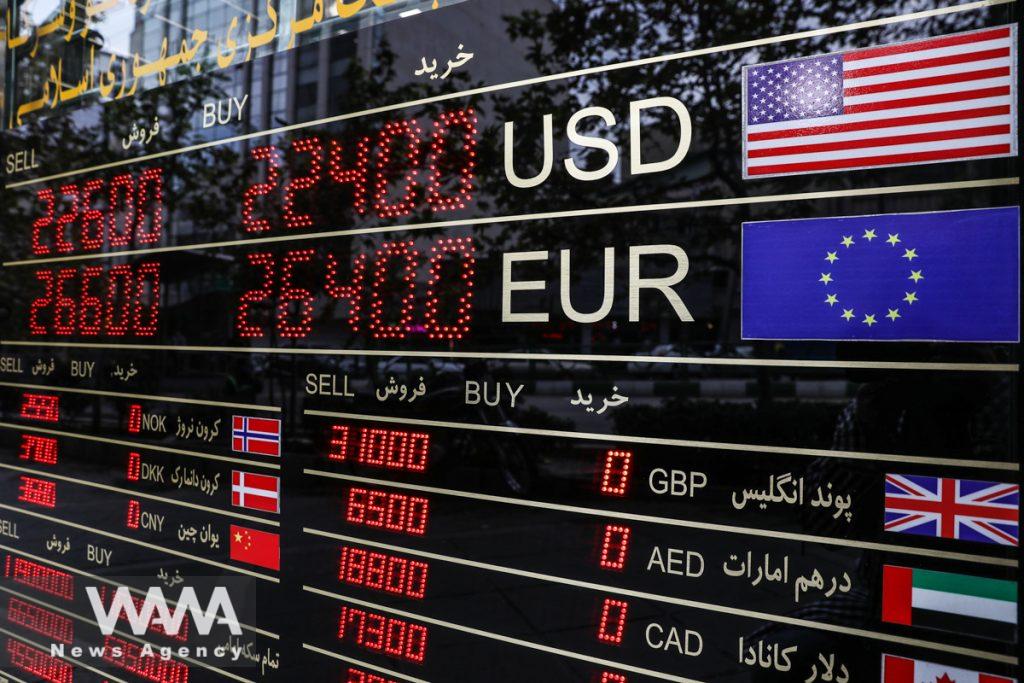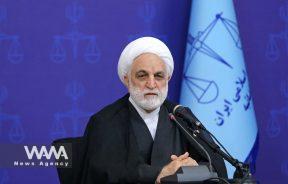Iranians Dismiss U.S. Election, Calling Candidates Unsavory Figures
WANA ( Nov 05 ) – As the U.S. presidential election approaches, Iranians are reflecting on its potential impact, though many express a sense of skepticism about whether the outcome will bring meaningful change.
On Tehran’s streets, anti-U.S. murals and political imagery underscore the ongoing distrust and complex relations between the two nations.

Iranian clerics pass in front of an anti-U.S. mural during the 45th anniversary of the U.S. expulsion from Iran, in Tehran, Iran November 3, 2024. Majid Asgaripour/WANA (West Asia News Agency)
Interviews with everyday citizens and Iranian officials suggest that many in Iran view U.S. elections through a lens of caution, with a general consensus that neither party is likely to shift the core dynamics of U.S.-Iran relations.
One Tehrani citizen voiced a sentiment shared by many: “In my opinion, there is no difference between the two U.S. candidates. For me, they’re both useless.” Others like Afshin Amirshahi acknowledged that while Trump’s past presidency was widely regarded as unfavorable to Iran, any future president would likely continue policies that ultimately prioritize American interests over diplomacy with Iran.
While the debate surrounding U.S.-Iran relations continues, political and international affairs expert Mohammad Ghaderi provided a nuanced take on the election’s implications. He noted that, for Iran, there is little difference between America’s two main political parties. “The general policy is confrontation and enmity with the Islamic Republic of Iran,” Ghaderi observed, highlighting the Republicans’ preference for hard power versus the Democrats’ emphasis on soft power.
Reflecting on Biden’s recent term, Ghaderi pointed out that even a Democratic administration perceived as more lenient on Iran had enacted policies and actions that conveyed otherwise.
“Republicans are straightforward in their hostility toward Iran,” Ghaderi explained, noting that this overt stance allows Iranians to communicate their adversarial relationship with the U.S. easily. On the other hand, the Democrats’ approach, characterized by soft power and psychological tactics, makes it challenging for Iranian leaders to convey this hostility to the public clearly.
Iran’s Foreign Ministry Spokesman, Ismaeel Baghaee, addressed reporters at a press conference, reinforcing the country’s stance on the election. He asserted that for Iran, America’s actions matter more than its electoral choices. “Unfortunately, the history of relations between the two countries has shown not much difference between different American governments,” Baghaee stated. He emphasized that regardless of who holds office, Iranians have consistently stood ready to defend their nation’s integrity and sovereignty against any foreign interference.
In a televised interview on national TV, Foreign Minister Seyyed Abbas Araghchi reiterated this sentiment, stating, “Iran has no illusions about American intentions. History has shown us that administrations may change, but the core of U.S. policy toward Iran remains the same: pressure and control.” He emphasized that Iran would remain vigilant, preparing to defend its interests irrespective of any perceived shift in Washington.
Many Iranian citizens echoed this sentiment of the Iranian foreign minister, such as Saeed Daneshmandi, a nurse in Tehran, who remarked, “The most important thing is that we rely on our own resources. It doesn’t matter much to us who becomes the president of the United States; they are clearly hostile to us.”
In Tehran’s Ferdowsi Square, where currency exchanges show the latest fluctuations in the dollar’s value, the indirect impact of U.S. policy on Iran’s economy is visible. Despite ongoing financial pressures and sanctions, Iranian resilience remains a dominant theme in the public narrative.

Signboard of a currency exchange store showing the dollar rate (dropped) after Joe Biden wins the US elections, in Tehran, Iran November 8, 2020. Majid Asgaripour/WANA (West Asia News Agency)
For many Iranians, the U.S. presidential election represents yet another chapter in a complicated relationship. Although there is intrigue about the future, there is also an overall belief that Iran must prioritize self-reliance over expectations of positive change from any U.S. administration.












